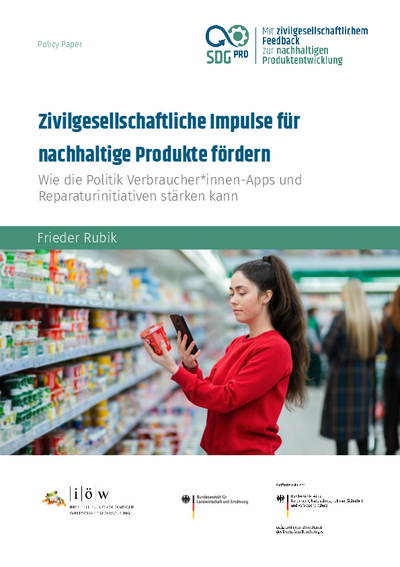Fostering civil society impulses for sustainable products How policy can strengthen consumer apps and repair initiatives
Making the economy sustainable is a complex joint task. Companies play a central role in this: the design, development, manufacture and sale of products are their core competence. It is true that product development and its design are part of entrepreneurial freedom. But social concerns, especially the global sustainability goals, should be integrated from the very beginning - also to meet the demands of customers.
Civil society actors such as environmental and consumer associations are campaigning at various levels for companies to meet higher environmental and health standards. Some associations and organisations develop apps that bundle customers' change requests. The project examined the apps "Replace PalmOil", "ReplacePlastic" and "ToxFox" as examples. Other initiatives are involved in the repair community to improve the repairability and longer useful life of products.
These actors activate citizens - not only in their role as buyers, but also as providers of impulses and knowledge. The apps and the activities of the repair community bundle the interests of citizens and influence corporate and political decision-making horizons. The operators of the apps and the repair initiatives work primarily on a voluntary basis. They cannot be a substitute for political measures, but they bundle civil society concerns in advance of political activities and measures. In order to preserve and also expand such approaches, politics should strengthen voluntary engagement and support the activities of the operators. Central to this is financial, infrastructural and organisational support for civil society initiatives and individual volunteers who want to work towards more sustainable products. The policy paper shows which approaches policy-makers can take to achieve this and explains how exactly the apps and the repair community work.



